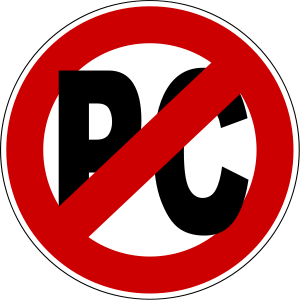The Hole on the End of the Bible Belt
Redundant Repetition

This is a post on a post. Yesterday's post to be precise. I had some reservations in posting yesterday partly because of its length and partly its content.
It grew long because of the back story, yet it was needed for the benefit of those who read my posts that don't go to church with me. I believe that most of you can relate to similar issues in your own churches. If I were politically correct I would apologize to the agnostics and atheists who may read this post, but I'm not, and I won't. Political correctness is based on the idea that you can pick up a turd by the clean end. I'd rather be biblically correct than politically correct any day of the week, so thanks for reading atheists and agnostics, but not sorry you can't relate.
In the end it is the literary content of the post I loved the most and made me publish it. The title is appropriate because that is what the guy Sunday was trying to say. As if we should have cut off our prayer, or even our lesson simply because the hands on the clock were in a certain position. Sometimes Jesus taught in the middle of the day, but some of the most memorable are when he spoke at night (see most of his boat rides). I loved the irony of the name and the length of the post. There are other parallels, but these were the most obvious.
Overall, the message of my post mimics the reason and my desire for writing. It accentuates the goal I have for this blog in that I hope to speak in many different ways to get us to review and re-evaluate our take on why we do what we do for Christ. Plus, anytime I can reference a Ted Dekker book, particularly my favorite one, it has to be good. Dekker also mimics this non-fiction theme in his first published books, one of them that ranks high on my list of books is When Heaven Weeps. If you have never read any of his works take the time, you will not be disappointed. We share a passionate love and writing spark in CS Lewis' essay Christian Apologetics. Reading that did not change my life, but it focused my walk and pushed me toward where I am headed.
Many authors think it cheapens the work to have to explain what was intended. I didn't hit on all the symbolism from yesterday in this post, that was not my point. I hoped to simply open your minds to the hidden undercurrents. Look for more, we can talk about them in the comments, but ultimately I hope you take away more from my writing than just the anecdotal stories of a prolific typist.
Related articles
- Cut It Short (byrdmouse.com)
- Interpretative Labeling (byrdmouse.com)